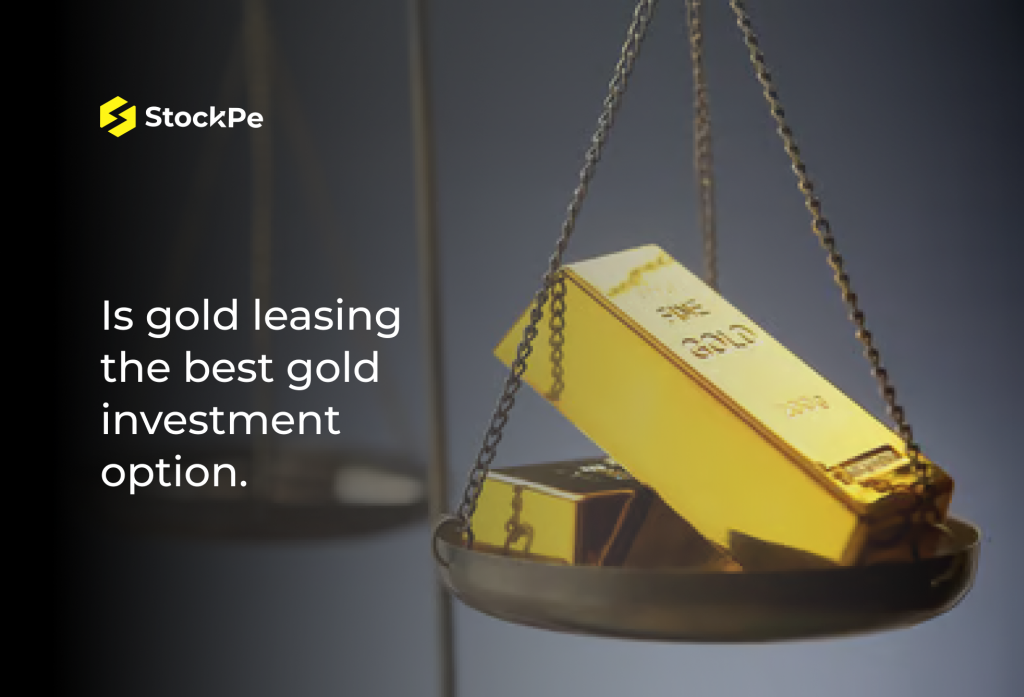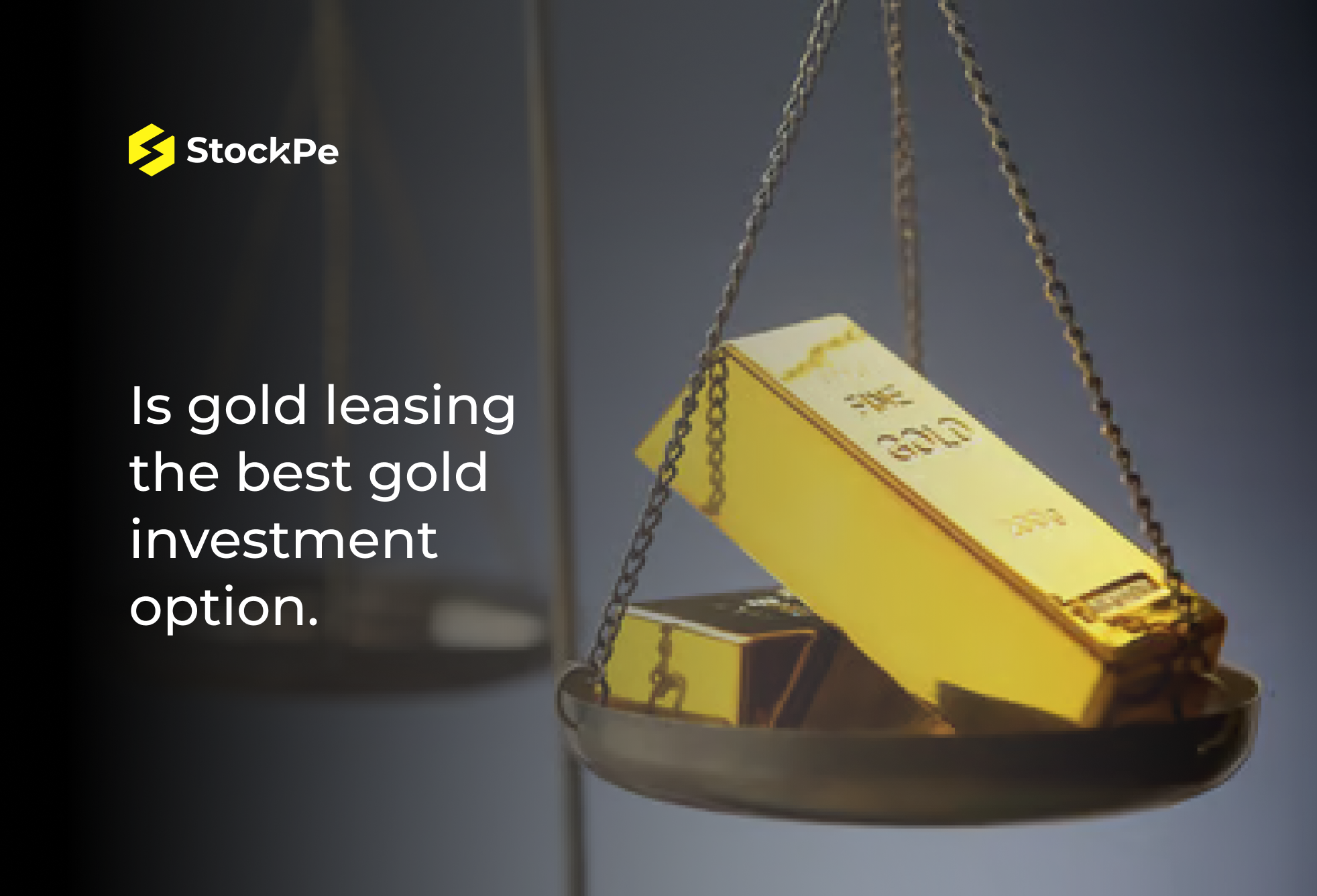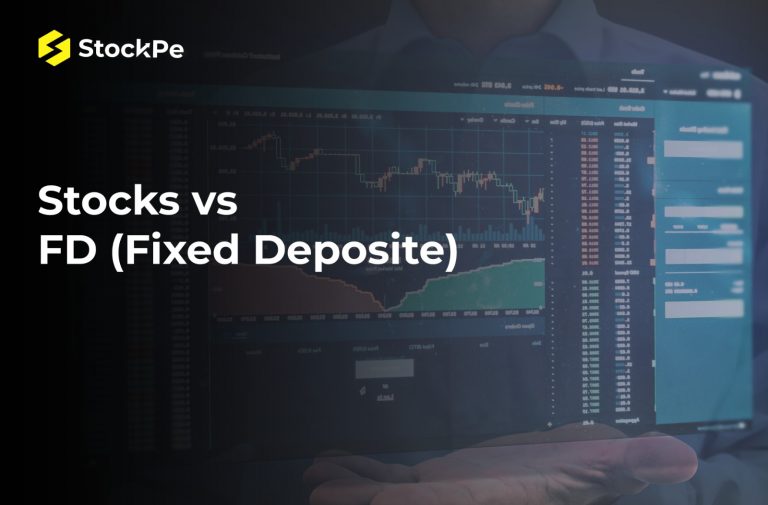Leasing Gold: Choosing the Best Gold Investment Strategy
There are a number of gold investment strategies on the market. One such choice that has acquired fame lately is gold leasing. Gold leasing permits financial backers to get to the advantages of gold proprietorship without really possessing actual gold. In this blog entry, we will dig into the universe of gold leasing, its rent residency, the gatherings in question, and its upsides and downsides. By the end, you will have a better idea of whether gold leasing is the best option for your gold investment.

What is gold leasing?
Gold leasing includes a lease agreement between two parties: the lessor and the lessee. Most of the time, the lessor is a bank or other financial institution that owns actual gold. On the other hand, a jeweler, an individual investor, or even a mining company could be the lessee. The lease tenure fluctuates, going from a couple of months to quite a long while, contingent upon the understanding between the parties in question.
Gold Investment Options
Before we get into the details of gold leasing, let’s look at some other options for investing in gold. One customary choice is putting resources into actual gold, which includes buying gold bars, coins, or gems. While actual gold offers substantial proprietorship, it requires capacity and protection costs, alongside potential security concerns.
Investing in digital gold is yet another option that is gaining popularity in the digital age. Investors can buy and sell gold digitally through digital gold platforms, which are backed by actual gold that is kept in safe vaults. Digital gold is a popular choice for investors due to its ease of trading and lack of physical storage requirements.
Deciding the ideal opportunity to begin gold renting as a venture relies upon different elements and individual conditions. Here are a few contemplations to help you with assessing the timing:
- Situation on the Market: Survey the ongoing economic situations and patterns connected with gold. Global economic conditions, geopolitical events, inflation, and interest rates all have an impact on gold prices. Observing these elements can give bits of knowledge into whether it is a positive chance to begin gold renting.
- Goals for Investments and Risk Tolerance: Take into account your investment objectives and risk tolerance. Like any investment, leasing gold carries risks. Check to see if leasing gold meets your risk tolerance and investment goals. On the off chance that you look for a long haul, stable venture, gold renting might be more reasonable contrasted with transient hypothesis.
- Financial stability: Evaluate your monetary solidness and liquidity. Gold renting frequently includes securing capital for a particular period. During the lease period, make sure you have enough working capital and can handle any potential liquidity issues.
Upsides and downsides of Gold leasing
Gold renting has its own arrangement of benefits and disservices. Let’s go over each one in detail:
Advantages:
- Access to Working Capital: Gold renting gives a road to people or organizations to get to working capital by utilizing their current gold property. They can rent their gold to banks and use the money to pay for other investments or business costs.
- Potential for Procuring income: By charging an interest rate on the leased gold, the lessor, in this case the financial institution, can make money. A potential return on investment for the lessor is provided by this interest, which typically grows over the duration of the lease.
- Diversification of Investment Portfolio: Without actually owning any gold, investors can add gold exposure to their investment portfolios by leasing gold. This broadening can assist with relieving chance and equilibrium out of the general speculation procedure.
Disadvantages:
- Risk from a Third Party: Gold renting includes a specific degree of counterparty risk. The lessor may suffer financial losses if the lessee fails to fulfill their obligations, such as returning the leased gold or making interest payments.
- Control over the gold is limited: Gold lessors have limited control over the leased gold, in contrast to owners of actual gold. Some investors may be concerned about this lack of control because they would rather have direct ownership and possession of their investments.
- Offline Market Limitations: Gold renting fundamentally works in the disconnected market, making it less available and straightforward contrasted with advanced gold stages or other web-based speculation choices. This can restrict the interest of specific financial backers who lean toward a more helpful and mechanically progressed speculation experience.
In conclusion, people who are interested in gold but don’t want to own it physically can invest in it by leasing it instead. It gives advantages like admittance to working capital, potential pay age, and expansion of venture portfolios. However, the offline nature of the market, the counterparty risk, and limited control over the gold must all be taken into account. Likewise with any speculation choice, exhaustive examination and cautious assessment of individual monetary objectives and hazard resistance are pivotal.
Gold leasing is definitely something that should be looked into in the ever-changing options for gold investments. However, if you want to know if gold leasing meets your investment goals and risk tolerance, you should talk to financial experts or advisors. Keep in mind that every investor’s situation is unique, and the best investment option ultimately depends on one’s preferences and objectives.





